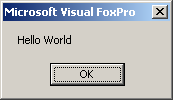ACT
|
The documentation that comes from ACT! takes too many pages to print out and carry. Many find the PDF files to be awkward to search. Here is a web based HTML solution. So we have provided this version that we have found so helpful, as a public service. We formatted it, and removed blank space to make it more readable. We also added Visual FoxPro examples to the Visual Basic and C++ ones. It took more time than it looks, and we hope you find it helpful.
Table of Contents for all Chapters |
Each document has its own Table of Contents. But his is the Table of Contents for all documents, if you want jump immediately to any document. |
Introduction - Introducing the ACT! SDK |
|
Chapter I - ACT! OLE Database Object |
Objects, Properties, Methods - Add through.Update |
Chapter II - ACT! OLE Application Object |
Activate Method ... |
Chapter III - ACT! Scripting Support |
Making VBS programs, AddAuxCommandToToolbar and Event Control Methods |
Chapter IV - Adding Extensible Views and Tabs to ACT! |
|
Chapter V - Adding Custom Commands to ACT! |
Adding VBS script files |
Appendix A - ACT! Database File Formats Reference |
ACT! Email Formats |
Appendix B - ACT! Command ID Reference |
How to execute any menu choice using the Command Method |
ACT6-SDK-Word.HTM |
This is the Word DOC Saved As HTML format |
ACT-SDK-Word.DOC (9 megabytes) |
This is the original Word DOC file |
ACT! 6.0 Developer's Reference in PDF format (5 megabytes) |
|
SDK Samples in Zip format for VB and VC++ (0.4 megabytes) |
|
ACT! SDK Changes |
As of June 11, 2002 |
Phone.FMT |
Phone format file for ACT! |
Recurring Activity Codes |
Understanding the codes |
ACT! Tables, Field Names
and Descriptions
|
Including the Field Numbers necessary in scripts and programs |
The SDK which comes with ACT! includes sample code from Visual Basic (VB) and C++ (VC++). The syntax is basically similar, but different enough in the details that they will not run properly without modification. We provide the code that would be used with Visual FoxPro (VFP).
Here are some examples which show the similarities and differences. Often the differences are small, such as not requiring the word "set" or requiring the use of parentheses.
|
|
Visual Basic | Requires the word "set" before object definitions |
|
|
Visual C++ |
Requires a semicolon at the right side of a command |
|
|
Visual FoxPro |
Requires parentheses around the parameters of a function |
| Visual Basic | Set objDatabase = CreateObject("ACTOLE.DATABASE") |
| Visual C++ | Database.CreateDispatch("ACTOLE.DATABASE", pException)
; |
| Visual FoxPro | objDatabase = CreateObject("ACTOLE.DATABASE") |
| Visual Basic | objDatabase.Close |
| Visual C++ | Database.Close ; |
| Visual FoxPro | objDatabase.Close |
| Visual Basic | objContact.MoveNext |
| Visual C++ | Contact.MoveNext() ; |
| Visual FoxPro | objContact.MoveNext |

| Visual Basic | MsgBox "Hello World" |
| Visual C++ | AfxMessageBox("Hello World") ; |
| Visual FoxPro | MessageBox("Hello World") |
| Visual Basic | cUniqueId =objContact.data 1 |
| Visual C++ | cUniqueId =objContact.data 1 ; |
| Visual FoxPro | cUniqueId =objContact.data(1) |
| Visual Basic | objDatabase.Contact.Lookup CF_Name, "Chris Huffman", 0 |
| Visual C++ | objDatabase.Contact.Lookup CF_Name, "Chris Huffman", 0 ; |
| Visual FoxPro | objDatabase.Contact.Lookup (CF_Name, "Chris Huffman", 0) |
| Visual Basic | ' This is a comment |
| Visual C++ | // This is a comment |
| Visual FoxPro | * This is a comment |
| Visual Basic |
dim objData as object |
| Visual C++ |
dim objData as object |
| Visual FoxPro | * (no need to dimension objData) objData = CreateObject("ACTOLE.DATABASE") |
| Visual Basic | If x =1 then y =1 else if y =0 end if |
| Visual C++ | If (x =1) { y =1 ; } else { y =0 ; } |
| Visual FoxPro | If x =1 y =1 else y =0 endif |
reg query HKLM\Software\Classes /s /f *.dll > DLL.txt
 |
|